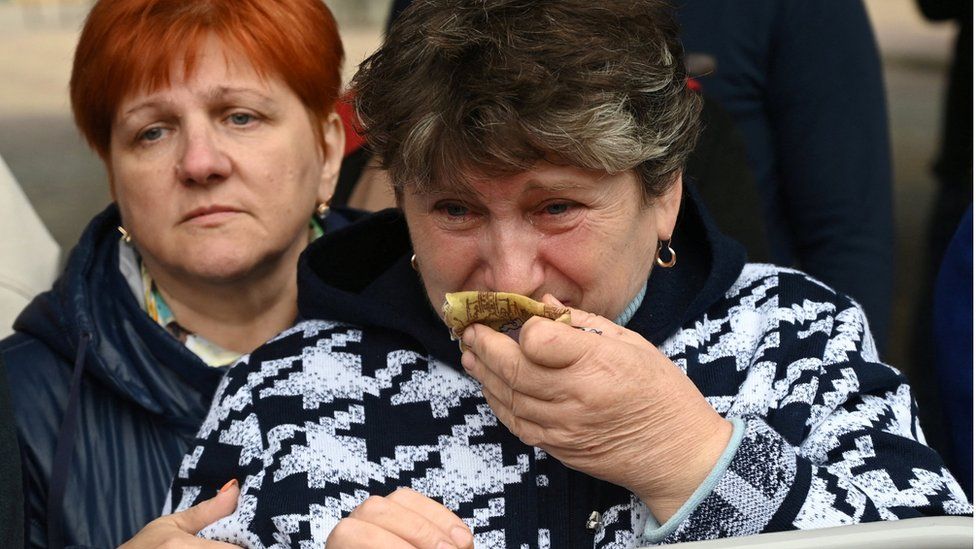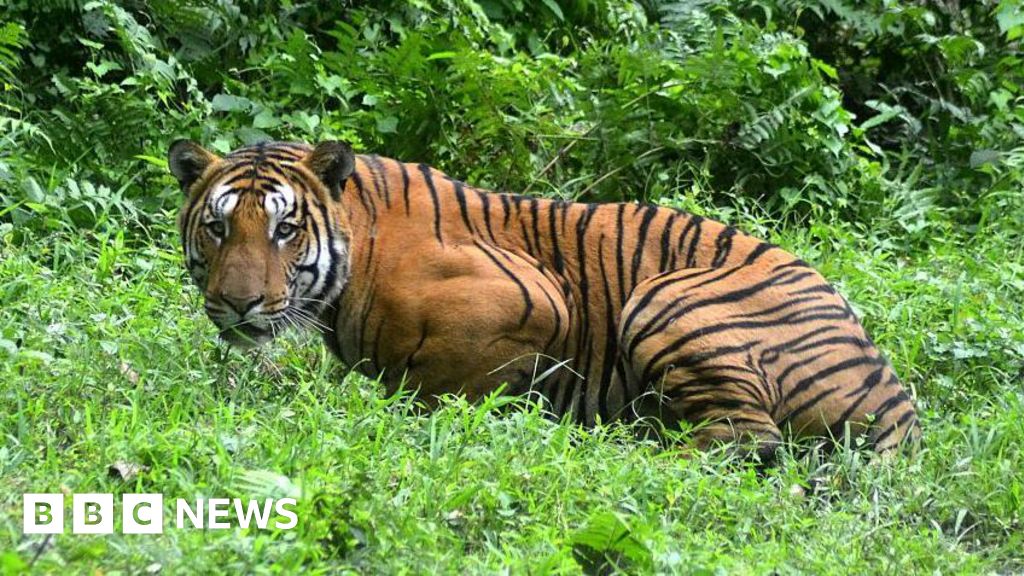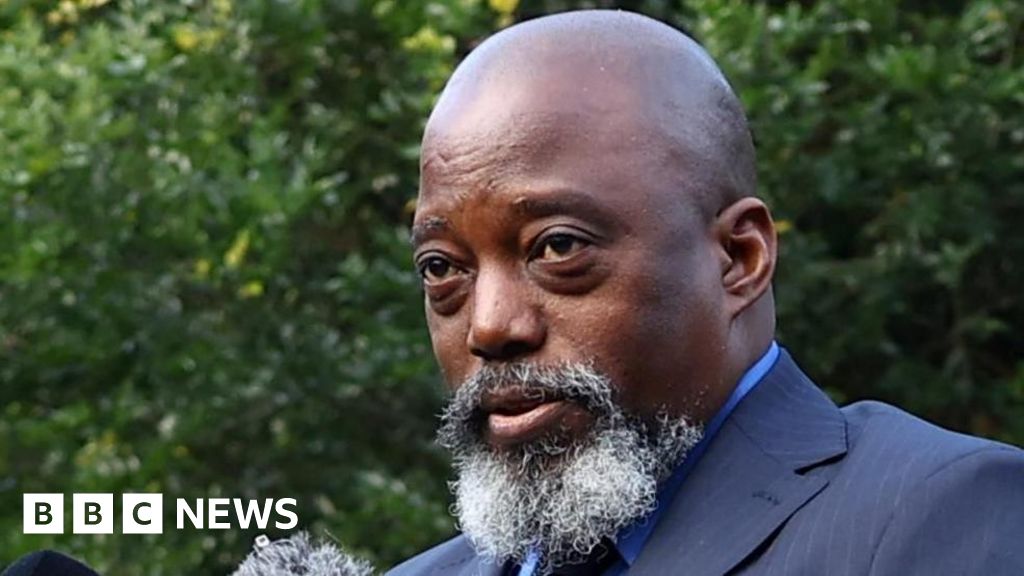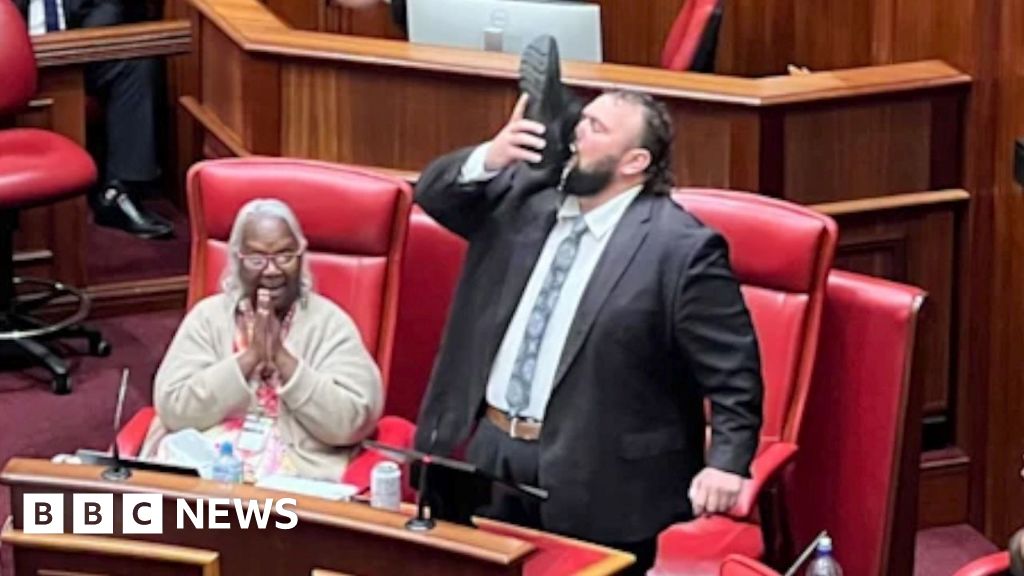ARTICLE AD BOX
By Francesca Gillett
BBC News
 Image source, Reuters
Image source, Reuters
A woman reacts as reservists depart for military bases, in the city of Bataysk in the Rostov region
Russia has admitted it made mistakes in its drive to call up of hundreds of thousands of military reservists.
Reports have been circulating on social media of people with no military experience being called up - as well as others who are too old, or disabled.
President Vladimir Putin's spokesman has now conceded errors were being made, saying there were cases when the mobilisation decree had been "violated".
It comes as people in Russia continue to protest against Vladimir Putin's plan to mobilise 300,000 military reservists. Reports in opposition Russian media suggested that up to one million people could be called up, pointing out that details of the exact number of required reservists were omitted in the published decree.
In the latest sign of growing public discontent, an army recruitment officer was attacked in the Siberian city of Ust-llimsk. Footage on social media appears to show the attacker approaching the officer and then shooting him.
So far, more than 2,000 people have been arrested at mass protests in Russia.
Many young Russian men have tried to flee the country completely - but speaking earlier, President Putin's spokesman said that there had been no decision on whether to close Russia's borders to stop potential recruits escaping.
Protesters clash with police in Russia's Dagestan
While large protests have been taking place in major cities across Russia, in one province in the south of the country, protesters have been seen clashing with police.
It marks a rare outbreak of violence against authorities, and more than 100 people have been arrested.
Dagestan, a mainly Muslim region of Russia, has seen a higher death toll in the war than any other area.
Recent analysis by the BBC's Russian service showed that at least 301 soldiers from Dagestan have died, 10 times more than in Moscow - but the true figure is likely to be far higher.
Image source, Telegram
Image caption,Police detain a protester in Makhachkala
Dozens of videos posted to social media showed protesters confronting police and other security officials in the regional capital, Makhachkala.
OVD-Info, an independent Russian human rights monitor, said officers resorted to using stun guns and truncheons on the crowds.
In one video, a man detained by officials headbutts a police officer, before being beaten by other personnel.
Nord Stream pipeline leaking into North Sea
Also on Monday, it emerged a gas pipeline from Russia to Europe has begun leaking into the Baltic Sea, potentially releasing large amounts of methane into the atmosphere.
The Nord Stream 2 pipeline never actually opened, because Germany cancelled it after Russia invaded Ukraine earlier this year.
But gas had already been pumped into the pipe, and some of that gas is now escaping at a spot just south of Sweden, Denmark has said.
Pipeline operator Nord Stream AG, meanwhile, said there had been a drop in pressure in both lines. "Tonight, dispatchers from the Nord Stream 1 control centre recorded a pressure drop on both branches of the gas pipeline. The reasons are being clarified."
Methane is highly flammable and is also a greenhouse gas that's far more potent than carbon dioxide.
Denmark - whose island of Bornholm is near to the leak - has warned it is "dangerous for maritime traffic" and has set up a prohibitive zone within five nautical miles of the pipeline.
Unlike Nord Stream 2, Nord Stream 1 is in regular use. Russia has cut supplies through that pipeline in recent months.
Image source, Reuters
Image caption,A security guard walks in front of Nord Stream 2 in Lubmin, Germany
Choosing to leave or stay in battered city of Bakhmut
The BBC's Orla Guerin is in Bakhmut in Ukraine's eastern Donbas region, where Ukrainian troops are holding off Russian forces.
In her account of the hostilities, she tells of how she chanced upon the body of an ambulance driver who was killed not far from his depot, his body punctured by shrapnel.
"His body lay where he fell - alone, flat on his back, under a weak September sun," she says.
He was killed around noon on 24 September during hours of intense shelling. She learned later that his name was Andriy Yablonsky and he was 52.
A woman in a red coat screamed in anguish nearby as she sheltered in a doorway. This was Andriy's sister. "What should I do for my brother?" she wailed. For more than an hour, he couldn't be moved, because there was no let-up in the barrage.
His name has now been added to the list of Russia's victims in Bakhmut. More than 70 civilians have been killed by enemy shelling in recent months, according to the local governor Pavlo Kyrylenko.
"I want to cry days and night," said Lidiya spoke to the BBC as shelling rained on the city
For hours that morning, the city centre echoed to the whistle and deafening shriek of incoming shells from Russian forces, as well as the thud of outgoing rounds from the Ukrainians.
The artillery duel was so fast that it was hard to keep track, our correspondent said. A Ukrainian colleague described it as "like badminton".
Ukrainecast
There have been protests in Russia over President Putin's partial mobilisation plans, and an officer at a recruitment centre has been shot. The BBC's Will Vernon in Moscow tells Lucy and Irena what people in Russia are saying to him, and Rayhan Demytrie in Tbilisi talks to some of the people crossing the border into Georgia.
At the weekend, former US marine Andy Tai Ngoc Huynh returned home - he had been fighting in Ukraine when he was captured by Russian forces. He was released as part of last week's prisoner swap. His fiancée Joy shares her relief that he's now back home.
And veteran journalist and author Misha Glenny tells us that Ukraine has rare earth metals worth trillions of dollars - resources that could be very valuable to Russia.

 2 years ago
34
2 years ago
34








 English (US) ·
English (US) ·